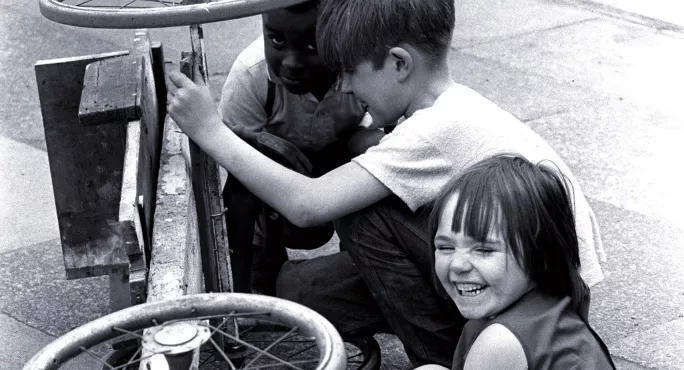Book review: Blueprint - How Our Childhood Makes Us Who We Are
Share
Book review: Blueprint - How Our Childhood Makes Us Who We Are
Blueprint: How Our Childhood Makes Us Who We Are
Author: Lucy Maddox
Publisher: Robinson
Details: 320pp, £14.99, paperback
ISBN: 9781472137883
On the whole, Blueprint is a very useful addition to the plethora of books written about psychological development. It is written in
a highly accessible style and will be useful for those who are interested in human development, but have not had any relevant formal instruction. In particular, in the absence of a standard human-development module in initial teacher education programmes (which unfortunately seems to be the norm in England at present), it will be useful background reading for the classroom teacher who frequently finds herself thinking “when can the average child do…?” or “why did that child react like that?”
The author, consultant clinical psychologist Lucy Maddox, says in her introduction that she “was surprised at how few of my non-psychology friends knew about the really classic studies, the juicy morsels from developmental psychology that shed so much light on who we are as adults…Just as we are taught about the famous experiments of Newton and Archimedes, we should also be told how the vital importance of affection was discovered and how we develop our sense of self.” To that, I say yes indeed.
Maddox covers most of the “classics” in enough detail to explain why specific studies in the history of psychology have been important in our ongoing journey towards understanding the developing human being, and why human development matters so much in the creation of policy for children and families. At several points in the book, I found myself thinking, if only those responsible for creating the policy for baseline testing, or the authors of Ofsted’s Bold Beginnings review of the curriculum last year, had read this book, then we wouldn’t have found ourselves in the current situation.
But, in some ways, the book could have been even better. One issue that I have encountered when trying to teach and discuss psychology is a lack of understanding of the experimental method, including the concept of statistical probability. As such, it is surprising that Maddox found the space to explain specialist methodology, such as habituation and preference in infant research, but not the manner in which research data is typically collected and processed.
Strange choices
In some parts, there is an imbalance between accessibility and excessive informality. For example, we are told that developmental psychologist Erik Erikson “sounds like a Swedish pop star” and that one of Maddox’s interviewees was “in the grip of a horrible cold”. I’m not convinced of the value to the reader of either piece of information.
The sheer volume of material included also means that some aspects of theory and research are skimmed over; again, this is a matter of giving a non-psychologist audience sufficient basic information versus oversimplifying the material. Additionally, there are some strange chapter topics. For example, why miss out any reference to literacy in the language chapter, but include a section on communication with computers? And why entirely ignore evolutionary research on sibling relationships, theory of mind, and play, in the relevant chapters?
As Maddox works in the therapeutic arena, it is not surprising that there are references to different psychological therapies in each chapter. But this tends to dominate in some sections of the book, such as the “play” and “mind-reading” chapters. The final chapter, following a brief overview of the book’s contents, undertakes a very brief summary of major therapeutic techniques. I finished the book wondering if there should have been a reference to therapy in the title, as there was so much emphasis on this topic.
The principal aspect I found problematic was that, despite quite an impressive number of references, Maddox relies heavily upon interviews that she carried out with individual experts in the field to drive the main discussion in her chapters, rather than creating this herself based on the relevant literature. This means that she sometimes decants a very one-sided analysis of the topic into her chapters. It is particularly striking in the gender chapter, which is based mainly on a conversation with Professor Christia Spears Brown. As such, it is ironic that, in her final chapter, Maddox says that “if one dominant voice is speaking, there is less room for others to be heard”. In the end, this rather sums up the discussion and analysis.
At the conclusion of Blueprint, Maddox proposes that her purpose is to provide “an overview of the big ideas in child development and let you have a think about how some of these might be relevant in some ways in your own life”. Overall, she does succeed in doing this, albeit in a rather eclectic and patchy fashion.
Dr Pam Jarvis is a chartered psychologist and reader in childhood, youth and education at Leeds Trinity University




